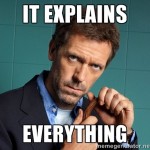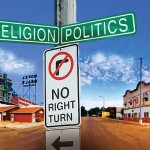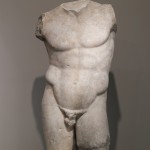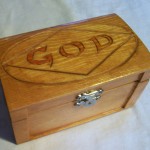[written Feb. 19, 2012]
Okay. So I am at Pantheacon 2012! This is the third day. I haven’t had time to blog yet because there are 6 workshop slots a day (a dozen or more to choose from for each slot) and they run from 9 am to after midnight! They have been a mixture of good and bad.
As expected, the attendees a motley crew of old hippies, pierced and tattooed goths, winged fairies, starry-eyed New Agers, corsetted and top-hatted steampunks, burly guys with long hair and kilts, Renfaire types, pirates, outwardly transvestites, transgendereds, leathered kinks, and general flambouyantes, and mixtures of all the above. Surprisingly, I only feel a little out of place in spite of my general lak of flambouyance.
During the opening ritual, I sat down next to guy who was dressed in unremarkable street clothes (like me). He was talking to his companion about the strange looks he was getting because he looked too straight/”muggle”. Since we are sharing the hotel with non-Pagans (pity them), I suspect that what he was experiencing was more self-consciousness than anything else. But he is right about the general level of deviance from societal norms here. I’m wearing my mostly black clothes, the kind that make the employees in the drug store back at home to follow me around. But here, I still look too clean cut. (Emphasis on the “clean” — what other group would need regular reminders to bathe?!) Last night, I got “carded” last night — asked to show my convention credentials while waiting in line — and I wondered if it was because I was too conservatively dressed.
It may seem shallow do go on about appearances, but Pantheacon is as much pageant as anything else. I saw a young woman wearing a bustled dress with peacock feathers flowing out of the bustle. She was spectacular. And she got applause as she walked through the hotel lobby. To overlook the appearances here would be to miss a big part of what the Con is.
As far as substance, it has been largely as I suspected. At times I feel at home here. But mostly not so much. When I am feeling at home, it is because I am among people who take spirituality seriously, who enjoy ritual, and who understanding “working on their shit” as a spiritual practice. But the resonances stop there. The language, or the discourse, of this community is pretty alien to me, principally because of how the gods are spoken about.
If you’ve followed this blog at all, you’ll know I came into Paganism through books (not unlike many people). I was drawn to Paganism largely because of how it was described by Margot Alder (who is here by the way). The problem with relying on Adler’s book was this: the community she described was more ideal than real. I heard her on a recording of a panel discussion at a Pagan conference (maybe a previous Pantheacon) admit that the Paganism she and Starhawk were describing in their books was as much Paganism as they hoped it would be, as it was a Paganism as it actually was. That’s a serious self-disclosure from a journalist.
And reading Drawing Down the Moon now, I realize that the Jungian explanations of divinity were at least as much Alder’s as her informants’. (Adler was the granddaughter of the co-founder of psychoanalysis, Alfred Adler.) A good example of this is Adler’s description of Fred Adams’ (of Feraferia fame) theology, which she describes a very Jungian fashion. But Adler’s book is the only place I have found where Adam’s mythology is described in those terms. In Adler’s defense, Jungian interpretations were the order of the day when she first wrote her opus. The Farrars published their work in the early to mid-1980’s and their interpretation of witchcraft was still strongly Jungian at that time. But I read Drawing Down in 2002 or 2003, and by that time, it was outdated, in spite of its revisions.
I remember later reading David Waldron’s Sign of the Witch and reading with some disappointment about the decline in popularity of Jungian interpretations of Pagan experience. Waldron’s book was published in 2008, and at that time I still had little contact with the actual Pagan community. While acknowledging the importance of Jungianism to the development of Neopaganism, Waldron declares that its heyday is over. The shift seems to have happened sometime around 2004. In that year, Waldron wrote an article about Jung and the Neo-Pagan movement and there was no indication in the article that Neopagan Jungianism was on the decline. In that same year, Janet Farrar and Gavin Bone published Progressive Witchcraft, in which Janet, while still relying heavily on Jung, claims to go beyond this theories. She claims that what Jungianism fails to account for is how the personification of deity leads to “the creation of super-charged thought forms that we call Gods and Goddesses, which have developed personalities as real as our own.” She goes on to insist that one must believe in the gods as persons, as opposed to archetypes, in order to “connect and work with them.” Progressive indeed! In my opinion her book would have been better titled “Regressive Witchcraft”, since it returned to a notion of the gods much closer to that held by the ancient pagans — who were polytheists, not pantheists.
While Waldron sees postmodernism as replacing Jungianism, I observe something else. It is not post-modernism that I am hearing most often here at Pantheacon … it is spiritualism. And I find this disturbing. What seems now to be the growing consensus (at least here) is that there are disembodied spiritual entities or beings “out there” that have discrete consciousness and personality. And the increasingly common explanation for what Pagans are doing when we do ritual is that we are interacting with these beings.
As a naturalistic pagan, this bothers me, both because of its lack of empiricism, but also because it seems to perpetuate the monotheistic division between spirit and matter (a division which Jung very much tried to reconcile). This is supernaturalism, and it is antithetical to my understanding of Neopaganism. While there are advantages to emphasizing the “otherness” of the gods (more on this in another post), I believe it is a mistake to treat them as another set of egos flying around in a disembodied state.
Now, to a certain extent, I can dwell quite comfortably in the rituals created and performed by these Pagans. My discomfort only arises afterward when the participants talk about what happened and I learn that they are interpreting their words and actions in a disturbingly literalistic and facile fashion. I’ve attended a few workshops on “drawing down”, “assumption of god-forms”, possession, and “aspecting” in order to better understand this. I also attended a Haitian Voudoo ceremony (complete with a brief possession). And for the most part, my suspicions have only been validated.
Now I don’t want to overstate how common this spiritualistic polytheism is. Obviously, since I was attending workshops and rituals about divine possession, most of the people there were probably already committed to certain basic assumptions about the nature of the gods. Those who did not share that view likely would have chosen another workshop or ritual. Nevertheless, even in those workshops addressing other subjects, the majority view seems to be that Pagan ritual is about praising, feeding, and (in some cases) making our bodies vessels for disembodied spirit beings. (The one significant exception to this seems to be among some of the “Old Guard” first generation Pagans).
Now people often say that Paganism is more about the doing than the believing. I’ve always been suspicious of this claim. Lots of people in various religions claim they do not have to believe in their god(s) because they experience their reality. I do not mean to question the reality of their sensory experience, but it is naive to overlook or deny the interpretive function. (I learned this when I had to reinterpret those characteristically Mormon spiritual experiences I have had.) As Ivo Dominguez said at one of the seminars yesterday: “The medium is the message.” And he meant that both in its traditional formulation (articulated by Marshall McLuhan) and also in the spiritualist sense of “medium”. Regardless of what they claim, belief (or at least their interpretation of their experience) seems to be very important to most Pagans.
So, do I belong here? I still don’t know. Do I feel at home? Not really. Is being here a creative experience for me? Yes. Do I find useful information or ideas that I can incorporate into my practice? Not really. So far, the Con is definitely stimulating, but I find most of my creativity arising in reaction to, not in sympathy with, the other Pagans here.
Fortuitously, as I type right now, I am waiting for a panel to begin which is entitled “Are we Pagan? Are You?” In the center of the table is Oberon Zell wearing a purple wizard costume (as well as the Voudoo priestess from last night). Zell is credited with coining the term “Pagan” for this community. So this should be interesting. To be continued …















